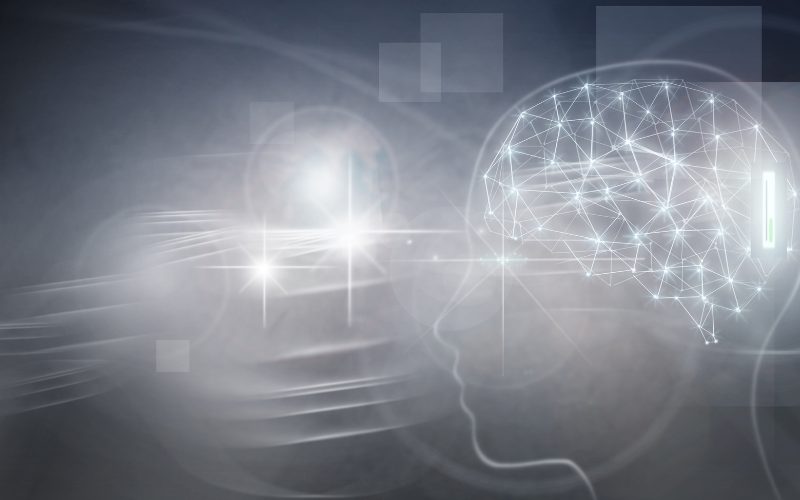The Law of Attraction is the idea that whatever you focus on, you attract into your life.
Whether it’s success, love, or happiness, the Law of Attraction teaches that you can create your reality by thinking positively and believing in your goals.
While this idea has roots in spiritual traditions, like ancient teachings from Buddhism and Hinduism, modern science is starting to back up some of these claims.
From neuroscience to quantum physics and psychology, there are scientific explanations for why the Law of Attraction might actually work.
Let’s break down some of the science behind it.
Mirror Neurons: Why Visualization Might Work
One scientific explanation for how the Law of Attraction works comes from mirror neurons. These are special brain cells that fire not only when we perform an action but also when we watch someone else do it.
For example, if you see someone running, the same neurons in your brain light up as if you were running yourself. Mirror neurons play a big role in empathy and learning by imitation.
But how does this connect to the Law of Attraction?
When you visualize yourself achieving a goal—whether it’s acing an interview, landing a promotion, or winning a race—your brain lights up in the same way as if you were actually doing those things.
This makes your goals feel more real and attainable. You’re essentially tricking your brain into thinking that success is already within reach, which can boost your confidence and help you take action.
It’s like practicing without physically doing it, which can make you more likely to achieve the results you want.
Athletes have been using visualization techniques for years to improve their performance, and this concept lines up perfectly with how the Law of Attraction emphasizes focusing on positive outcomes.
The Placebo Effect: Belief in The Law of Attraction Shapes Reality
Another way science supports the Law of Attraction is through the placebo effect. The placebo effect happens when people experience real improvements in their health after receiving a fake treatment—like a sugar pill—simply because they believe it will work. The belief is so strong that the mind influences the body to heal, even when there’s no actual medicine involved.
This shows that belief can have a huge impact on our reality. If people can experience real, physical changes just because they believe they’re getting treatment, it’s not a stretch to think that believing in your goals and dreams could also make them more likely to come true.
The placebo effect is proof that our minds are powerful and that what we believe has a real impact on what we experience. The Law of Attraction taps into this same principle—if you believe that good things are coming your way and you focus on them, you’re more likely to see those things manifest in your life.
Neuroplasticity: Rewiring Your Brain for Success
Another scientific concept that supports the Law of Attraction is neuroplasticity. Neuroplasticity is the brain’s ability to change and form new neural connections throughout your life. This is a big deal because it means that your brain is not fixed—it can adapt and rewire itself based on your experiences and thoughts.
When you focus on positive thoughts, goals, or affirmations, you can actually rewire your brain to support those outcomes. If you’re constantly thinking, “I’m never going to succeed,” your brain reinforces that belief by creating neural pathways that align with failure. But when you focus on thoughts like, “I am capable of achieving my goals,” your brain starts building pathways that make it easier for you to take action and spot opportunities that align with success.
In a way, the Law of Attraction works because you’re training your brain to focus on what you want, which makes you more likely to see opportunities and take action that leads to success.
Positive Psychology: The Benefits of Optimism
This is another area of science that supports the Law of Attraction. Positive psychology is the study of how focusing on strengths and positive emotions—like gratitude, hope, and happiness—can improve your mental and physical well-being.
Research has shown that people who have a positive outlook on life are not only happier but also healthier and more successful.
For example, studies show that people who practice gratitude regularly tend to have stronger immune systems, better mental health, and even more fulfilling relationships.
Similarly, people who maintain an optimistic attitude are more likely to bounce back from setbacks and stay motivated to reach their goals.
This ties directly into the Law of Attraction.
When you focus on positive emotions and believe in your ability to succeed, you’re creating a mindset that helps you attract more good things into your life. In other words, being optimistic helps you to notice opportunities, take risks, and persist even when things get tough—all of which are key elements of success.
Conclusion: The Law of Attraction and Science Align
While the Law of Attraction is often seen as a spiritual or mystical idea, there’s a lot of science that supports the concept.
Whether it’s the way mirror neurons help us visualize success, the power of belief through the placebo effect, or how neuroplasticity rewires our brains for positive outcomes, there are real scientific reasons to believe that our thoughts can shape our reality.
So, the next time someone tells you that thinking positively won’t change anything, remember: that science says it just might.
By focusing on what you want, staying optimistic, and believing in your ability to succeed, you could be using the Law of Attraction to bring your dreams closer to reality.
